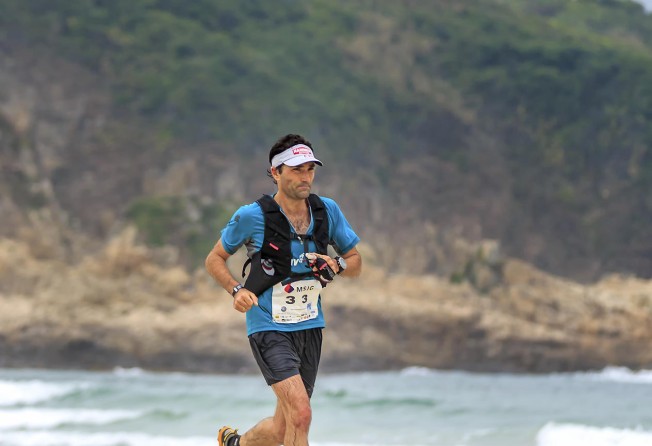Fit & Fab: Brendan Davies

Growing up as a "typical Aussie", Brendan Davies favoured team sports such as cricket and football, where competing was secondary to socialising. Confronting his 30s - and an expanding waistline - he decided to give up his gregarious pastimes in favour of running. The decision changed the course of his life.
Since then, Davies, 37, has undergone a meteoric rise in ultrarunning, transforming from rookie to elite in a few years.
In 2012, he was awarded Australian Male Ultrarunner of the year and last year he won the nation's biggest trail running race, The North Face 100 Australia, snatching the record held by world-renowned ultrarunner Kilian Jornet.
Last month, Davies visited Hong Kong to compete in the MSIG Sai Kung 50-kilometre trail race, and finished third.
He used the race as a training run to prepare for a string of international races over the next three months in New Zealand, Japan and the US.
Apart from an intense eight-times-a-week training regime, an important ingredient in his running success is his career. Davies teaches children with mild intellectual disabilities and behavioural disorders in western Sydney.
"It's a challenging role," Davies says with a measure of understatement. "Western Sydney is a very disadvantaged area with a lot of social problems. It's not a traditional classroom in any sense with book work, chalk and talk. Most of the lessons are hands on and physical. We spend half of our day outside."
Davies moved into special education teaching as a challenge, as well as a way of balancing his career and running pursuits. "I'm always challenging myself and always looking for new challenges. I felt teaching had become one-dimensional."
He now schedules his training and international competition around teaching commitments: before and after school, over long weekends and during school holidays.
And he finds that running has become an important tool in processing difficult days and in helping him improve both as a teacher and as a human being. "I can sometimes have very challenging days where kids are quite violent, impulsive and aggressive - it's not their fault," he says. "I use trail running as a way to process and to think through how I handle situations and how I could handle them better. It's a time for reflection. It's that time you need."
What does your running bring to your career?
First of all, it makes me a more patient, tolerant person. I have to be, in my job. I think if I didn't have the mental health and the physical benefits I get from trail running, I wouldn't be the teacher I am.
Have you ever thought of giving it all up to be a professional, full-time runner?
I'd love to, I think it would be a nice lifestyle for a while, but I don't think it's sustainable. I am friends with a couple of professional runners who have told me that, since going full time, training has become harder. They have too much free time.
Work gives structure on which to base your training and provides balance. I have those windows before work and after work, in the weekends, to really take advantage of, and I do.
When fitting it all in, does it ever feel like hard work?
Trail running is such a beautiful sport. If it was just road running, I think it would be hard work, but it's almost like it's not a sport or training for me: I'm simply doing what I love to do. Being outdoors is such a de-stresser and it gives me an opportunity to get away and just forget about things for a little while.
But then there's obviously hard training sessions like the track - then it definitely feels like hard work.
Do you think that running is a selfish sport?
I guess running goals can be very individualistic. But the community of runners is a huge part of trail running. If it wasn't for the running community I don't think I would have quite the same passion.
Being around people all the time, running becomes more than just a sport - it becomes part of your life. Runners become your best friends and the reason you get out and run. How do you handle the label of "elite" runner?
I just try to be accessible to everybody; to show people that I'm just a regular runner who's just a little more obsessed than the average person. I still get to the local running events near my home in the Blue Mountains, not just the big events. I still train with my running club where it all began, and I'll race anywhere.
What motivates you to compete?
Travelling is a great motivator; running internationally is a chance to meet new people. But for me experiencing and overcoming new challenges is probably the biggest motivator. I'm constantly seeking out the biggest and the hardest challenges.
Where do you want running to take you?
My focus this year is all about international running. I've set myself a goal of achieving a really good international result.
But the truth is, I don't know quite what that is yet - it's all relative to the day. But I want to run a really good, proper race at one of these big events. Wherever that gets me, I'll be happy with that.